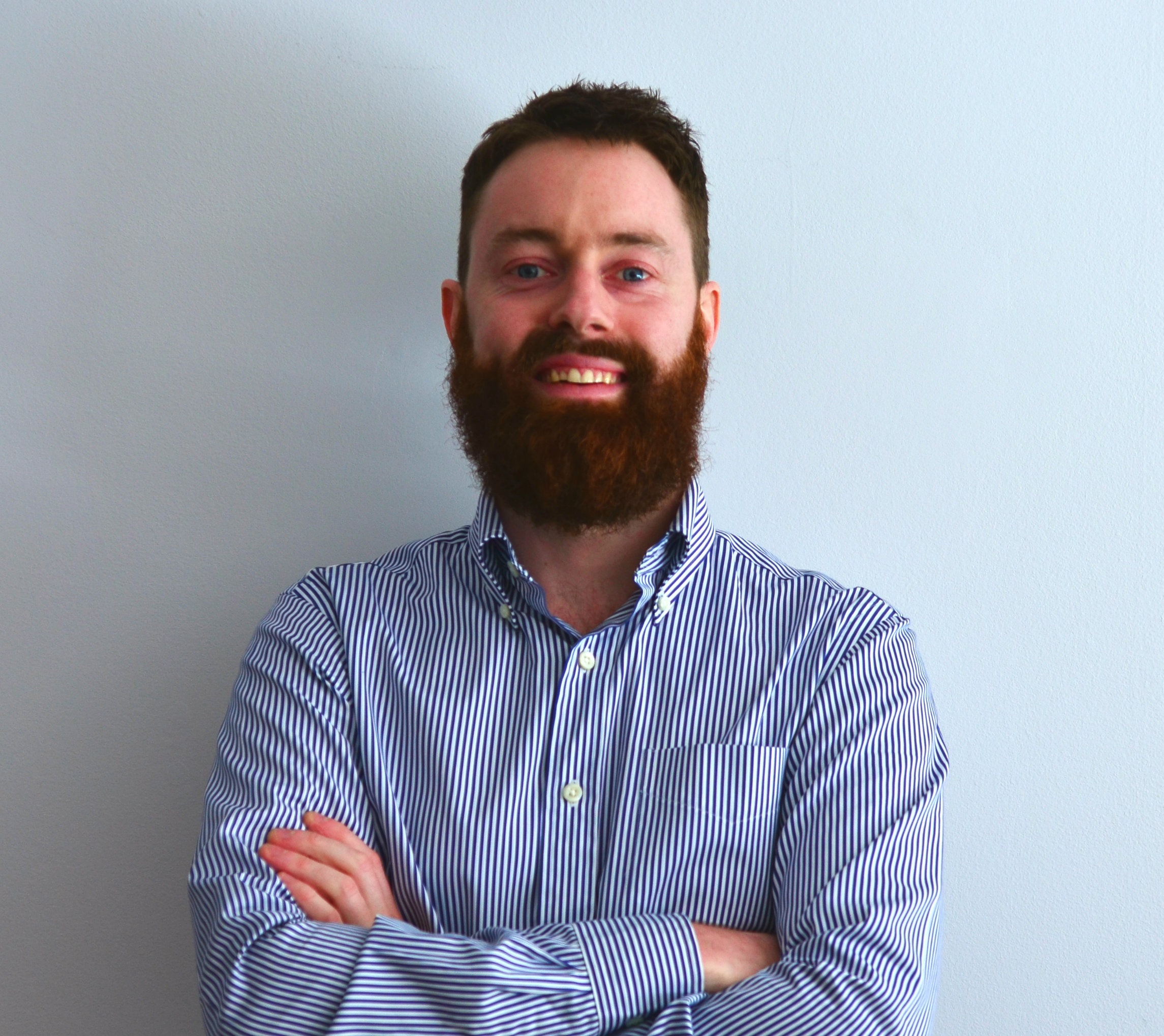Let’s face it – having confidence in job interviews isn’t easy.
Even if you’re really excited about the position, and even if it ticks all the boxes for being your Dream Job…
It can still be an uncomfortable, nerve wracking experience. But in this post I’m going to give you my go-to strategies for easily supercharging your confidence in job interviews.
Step One: It’s Okay (And Even Normal) To Be Nervous
As it says above – it’s okay to be nervous.
Don’t beat yourself up about it (that only makes it worse). Being nervous is your brain’s way of telling you that you’re invested in the outcome of this experience. And that you care about it, and want it to go well. I’ll even suggest that nerves are a good thing!
Why? Because if you’re prepared and ready for the interview then nerves will actually make you mentally sharper.
Studies have proven that a certain amount of anxiety & excitement actually improves performance. So your beating heart and excited nervous system will keep you focused and alert.
If you were too calm you’d run the risk of coming across as lacking enthusiasm. And your mind might start to wander mid-interview. So again, a certain degree of nerves will help to keep you engaged and present.
So before you go into the interview remember:
A) It’s okay to be nervous (don’t beat yourself up about it)
B) If you’re prepared your nerves will actually help you perform better
And on that note…
Let’s talk about how important it is to prepare for an interview. And how to prepare in a way that gives you an edge over other applicants. In a way that will also dramatically increase your confidence in job interviews.
Step Two: Over Prepare (So It’s More Of A Discussion Than An Interview)

Imagine this scenario…
You’re going on two blind dates this week. The first date is with Person A who you know absolutely nothing about. The second date is with Person B who was recommended to you by a mutual friend.
Plus, your mutual friend was kind enough to tell you a bit about that person’s interests, hobbies, and personality. Which date are you going to feel more confident walking into?
Probably the one with Person B .
Why?
Because you already have an idea about who they are and what they like. And from that you can begin a conversation. While going on a blind date with someone you know nothing about can be fun and exciting, going in blind can feel like hell.
I did this once when I was younger (and dumber). I thought I could “wing it”. And even though I performed okay, it wasn’t worth the level of awkwardness, and nervousness I felt the whole time I was there.
So what do you do?
You OVER prepare. You find out everything there is to know about the company.
Go to their website and look at their:
- Blog
- Portfolio
- Press releases
- Newsletter
- About pages
- Social media
You can also do a Google search for articles written about or by the company by mainstream outlets. This kind of research is incredible. And it really doesn’t take that long to do.
You want to spend at least an hour doing research on a single company before an interview. You can also look at their competitors and see what they’re doing in a way that’s relevant to the position you’re going for.
Over-preparing for the interview in this way will give you the ability to:
A) Compliment the company on the work they’re doing and how you’d be proud to join their business (with very specific examples)
B) Demonstrate how you could add value to their existing services or products (with examples)
C) Ask engaging questions that demonstrate your enthusiasm and insight into their company & industry
Being prepared will do wonders for your confidence in job interviews. Because then the job interview becomes more like a conversation and discussion.
Most people forget that the interview will usually be at LEAST 70% them asking questions about you.
And the other 20% will be YOU asking questions about them and the role. So you need to be prepared for what you’re going to ask THEM in that 20% when the ball’s in your court.
Step Three: Prepare Some Great Interview Responses & Examples

In the previous step I referred to over-preparing in terms of learning as much about the business and role as possible.
Well there’s another important area to prepare for…
And that’s your responses to the kinds of questions you’re going to get asked. Now you can’t exactly over-prepare for this section. Mainly because there’s no way of knowing the exact questions they’re going to ask you.
For example…
In my last job interview I got asked a question I’d never been asked for. The interviewer asked me:
“If you were interviewing for the same exact job at several businesses, what would be the X-Factor that would make you choose to work with one business over the rest?”
It was a great question!
And I genuinely had to take a moment to think about my answer. It wasn’t a question I was prepared for – but I actually appreciated the engagement it provoked.
I came out of the interview actually learning something about myself. But here’s the thing…
Usually 50%-80% of an interview will consist of the most common job interview questions.
For example:
- What attracted you to this company?/Why do you want to work with our company?
- What do you value in a workplace?
- Can you clarify what projects you’ve worked on in relation to X skill
- How do you like to work?
- Can you walk me through a stressful experience or challenge you encountered and how you resolved it?
- Where do you see yourself in 5 years?
So if you want to go into an interview with confidence…
Make sure you’ve mentally rehearsed some answers to these types of questions. You don’t need to memorise anything word for word (in fact I strongly suggest against that). But have a good general idea of the kinds of things you’re going to say…
And the specific examples, projects, and experiences that you can draw upon in your answers.
Step Four: Know Your Leverage (They Need You As Much As You Need Them)
One of the biggest factors that will boost your confidence going into an interview…
Is being aware and confident in your skills, experience, and achievements. This is easier to grasp if you’ve been working for 12-18 months in a similar position to the one you’re interviewing for…
Which allowed you to develop skills, and a small body of work. However, you can still understand your leverage if you’re going for your first job. Your leverage is the combined total of your skills, experience, attitude, personality, portfolio, and achievements.
Leverage is about your value.
It’s about what you bring to the table, and the results you can deliver (based on your past performance). The better your track record, the more leverage you have to land your Dream Job.
And the more leverage you have to ask for a higher salary. No matter where you’re at now, you need to know what you’re unique leverage is.
With the role you’re interviewing for, you need to be very clear:
A) What value you can offer
B) How you can deliver that value
C) How your portfolio, track record, experience, or qualifications demonstrates that you CAN deliver
Knowing your value will give you a huge amount of confidence in job interviews.
Like I said, it gives you leverage. Because if you’re a person of significant value and potential, then THEY need YOU as much (if not more) than you need them.
PS: Leverage can be tricky when you’re starting out, which is why it’s important to develop your skills as much as possible.
Step Five: Be Honest (You Have Nothing To Hide)

I have some pretty strong ethics when it comes to job interviews.
Some people out there recommend using weird NLP, persuasion tactics and things like that. Most of that stuff is absolute rubbish.
And here’s the thing…
You NEVER ever want to do anything that could even sightly be interpreted as embellishing, lying, exaggerating, or manipulating a recruiter or HR person.
Why? Because if it turns out that you’re not a good fit for the job, or that you can’t actually deliver what you said you could…
Then guess what – you’ve wasted your time and theirs. And you’ve also damaged your reputation in that industry.
But the good news is that you don’t have to lie. And you don’t ever have to use any shady persuasion tactics either! You just need to be honest with the person standing across from you (or on the other end of the phone).
Be honest about the value, skills, and experience you can offer. And be honest about your weaknesses and limitations.
Everyone has weaknesses – even the highest paid CEO’s and executives in the world can’t do everything. And they won’t expect you to – that’s why businesses build teams to cover different areas of competency.
So once you switch from viewing the interview as a performance – you’ll no doubt start to naturally feel more confident in job interviews. Just be your best self, be professional, and be honest.
Step Six: Use Confident, Grounded Body Language
I would be remiss not to include a section on body language.
I will say that things like body language are massively overrated when it comes to job interviews…
What matters the most is that you CAN actually deliver immense value to the company. And that you’re over-prepared for the interview. If those two things come together then you’re naturally going to feel excited and confident going in.
And your body language will reflect this.
But here’s a quick rundown of the kinds of things I remind myself before an interview:
- Smile
- Speak evenly (not too fast, and not too slowly)
- Match the volume of the person or people interviewing you
- Breath through your nose (it helps keep your breathing balanced)
- Look people in the eye when speaking or listening to them
- Shake their hand firmly
- Keep your hands still in your lap & try not to fidget
- Sit upright in your chair
- Stand upright when standing
I’ve found sometimes that standing and speaking confidently (event when you don’t feel confident at first)…
…Can actually help you feel more confident.
BONUS STEP: Have Options In Your Corner
When applying for jobs I like to spend two days doing a Resume blitz!
That’s where you apply for as many job & send your CV to as many businesses as humanly possible! There’s a simple reason for this…And that’s that you want to have as many job options available to you at any one time. Imagine going into an interview knowing you’ve got three other interviews this week alone.
How would you feel?
You probably wouldn’t put as much pressure on yourself to “get that one job” because it’s all that’s out there. You’d approach the interview from the perspective of, “Let’s see which business is a good fit for me, and me for it.”
And the reason you want to do an application blitz is simple – you want to get as many irons in the fire as quickly as possible. It’ll work wonders for your confidence in job interviews.
Bringing It All Together…
All of these strategies by themselves are powerful…
But when you use them all in conjunction with one another you’re guaranteed to walk into that interview more confident than ever before.
So to sum up…
If you want to have rock-solid confidence in job interviews then make sure you:
- Don’t beat yourself up about being nervous
- Over-prepare
- Know your leverage and be confident in your skills and abilities
- Be honest with your interviewer
- Cary yourself with physical poise and balanced posture
- Have options
And of course…
Don’t forget to SMILE and BREATHE.
It’s not a police interrogation. The recruiter doesn’t want to see you fail, they’re on your side. They hope that the next person who walks in is going to be their dream candidate!
So try and enjoy the experience.Interviewing is like anything, the more you do it the better you get at it.
Please leave a comment below with any questions or feedback!
References
You Might Also Like:
- How To Land Your Dream Job Fast: 5 Simple Steps To Launching Your Dream Career
- 5 Resume Mistakes And How To Fix Them Today
- The 3 Most Important Things To Do In Any Job Interview
- Questions To Ask In A Job Interview
- How To Build Your Leadership Skills In The Workplace
- 7 Things To Do Before Starting A New Job

Will Vaughan is the Founder & CEO of Your Career Mastery. He’s dedicated to helping young professionals discover and land the job of their dreams using a mix of proven strategies, tips, tools, and mindsets. He currently works as a Content & SEO manager for a 100 million dollar tech company in Melbourne, Australia.

